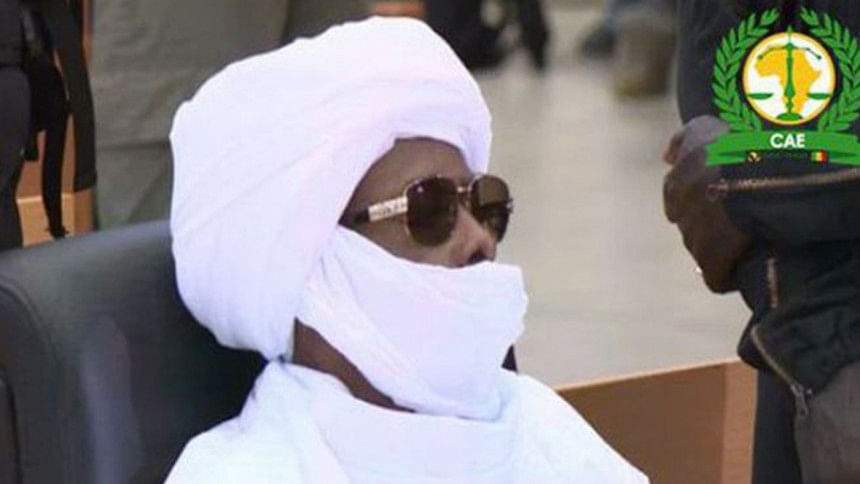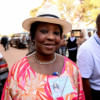Hissene Habre: Chad's ex-ruler convicted of crimes against humanity

Chad's ex-ruler Hissene Habre has been convicted of crimes against humanity and sentenced to life in prison at a landmark trial in Senegal.
The judge convicted him of rape, sexual slavery and ordering killings during his rule from 1982 to 1990.
Victims and families of those killed cheered and embraced each other in the courtroom after the verdict was given.
It was the first time an African Union-backed court had tried a former ruler for human rights abuses.
-Africa Live: Reaction from Habre trial
-Who is Hissene Habre?
Habre has been given 15 days to appeal.
"Today will be carved into justice as the day that a band of unrelenting survivors brought their dictator to justice," said Reed Brody from Human Rights Watch, who has worked on the case for 17 years and was in court for the judgement.
Throughout the trial, Habre refused to recognise the court's legitimacy, frequently disrupting proceedings.
The ex-president denied accusations that he ordered the killing of 40,000 people during his rule from 1982 to 1990.
His critics dubbed him "Africa's Pinochet" because of the atrocities committed during his rule.
Habre was arrested in Senegal, where he was exiled, in 2013.
Many of his victims campaigned for him to be tried following his overthrow in 1990.
In 2005, a court in Belgium issued a warrant for his arrest, claiming universal jurisdiction but, after Senegal referred the issue to the African Union, the AU asked Senegal to try Mr Habre "on behalf of Africa".
In 2013, a court in Chad sentenced him to death in absentia for crimes against humanity.
- Born in 1942 to ethnic Toubou herders in northern Chad
- Given scholarship to study political science in France
- First came to the world's attention in 1974 when his rebels captured three European hostages to ransom for money and arms
- Seized power in 1982 allegedly with the help of the CIA ousted by current President Idriss Deby in 1990
- Accused of systematically persecuting groups he distrusted
- A former swimming pool was used as an underground prison where survivors say they were subjected to electric shocks, near-asphyxia and "supplice des baguettes", when their heads were squeezed between sticks.

 For all latest news, follow The Daily Star's Google News channel.
For all latest news, follow The Daily Star's Google News channel. 








Comments